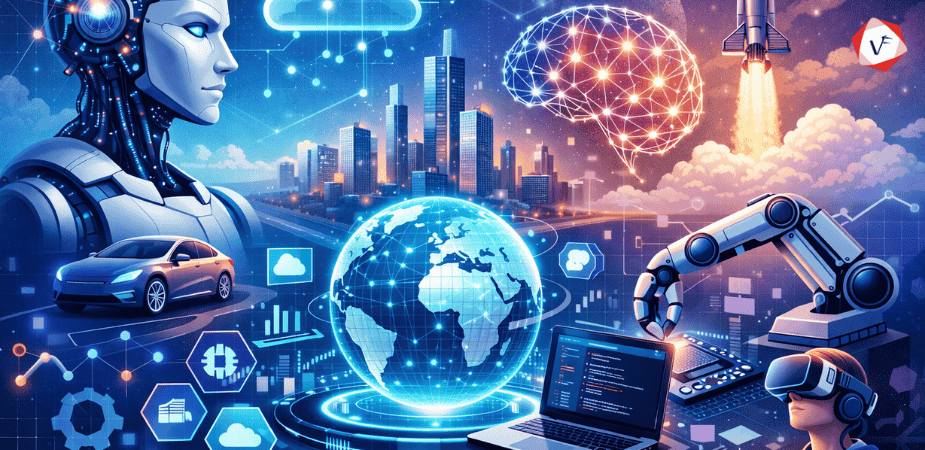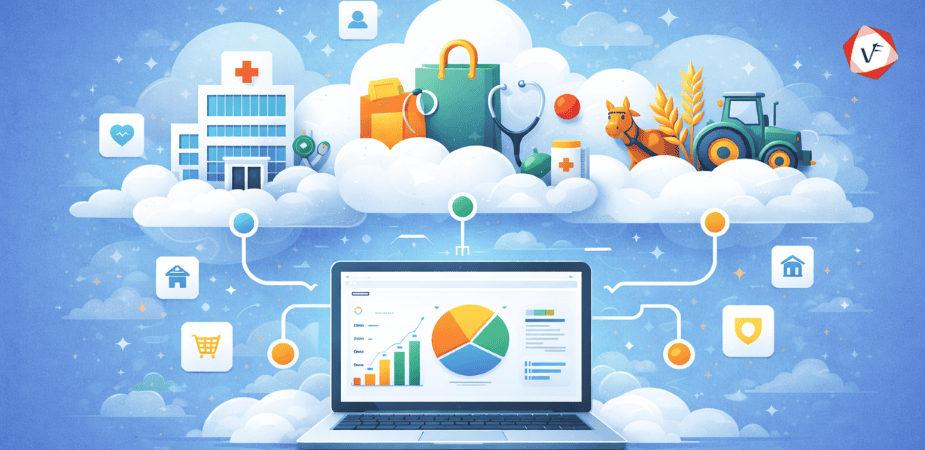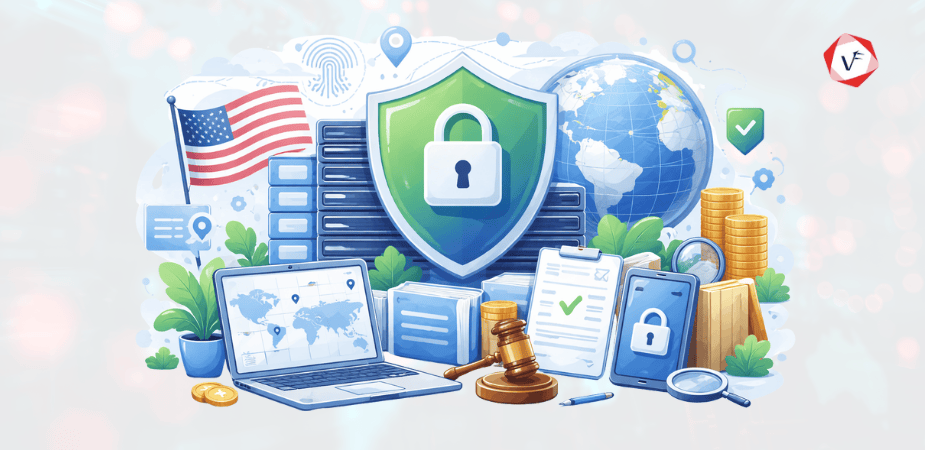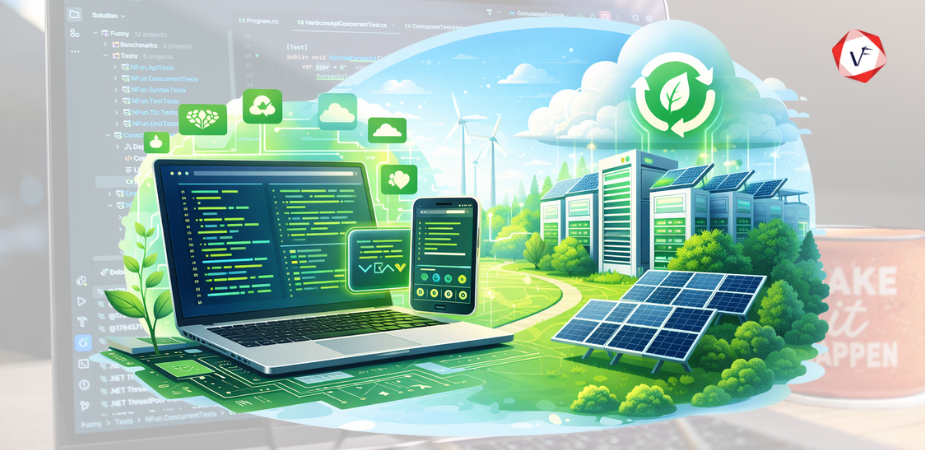- July 25, 2025 10:55 am
- by Safvana
- July 25, 2025 10:55 am
- by Deepthy

As AI allows machines to carry out activities that previously needed human intelligence, it has completely changed the way humans engage with technology.. At the heart of this transformation are AI agents—software or robotic systems that perceive their environment, make decisions, and act to achieve specific goals. These agents are fundamental to various applications, including automation, recommendation systems, self-driving cars, and intelligent chatbots.
In this blog, we will explore AI agents in-depth, covering their types, working principles, real-world applications, challenges, and future trends. We will also examine the ethical implications and the advancements shaping the future of AI agents.
An AI agent is a system that interacts with an environment by perceiving inputs (such as data, sensors, or user commands), processing the information, making decisions, and taking actions to achieve a defined goal. These agents function autonomously or semi-autonomously, optimizing their performance over time using learning algorithms.
Perception (Input) – AI agents receive input from their environment using sensors, cameras, or data sources.
Processing Unit (Brain) – The agent processes the input data using algorithms, decision-making models, and machine learning techniques.
Action (Output) – The agent executes actions based on its decisions, either digitally (such as a chatbot response) or physically (such as a robot moving).
Learning and Adaptation – Many AI agents incorporate machine learning to improve their decision-making over time.
Feedback Mechanism – AI agents use feedback loops to refine their learning and adjust their future behavior.
AI agents can be classified into different types based on their level of intelligence and autonomy:
1. Simple Reflex Agents
Example: A thermostat that turns off heating when the room reaches a specific temperature.
2. Model-Based Reflex Agents
Example: A self-driving car that remembers traffic patterns.
3. Goal-Based Agents
Example: Chess-playing AI like AlphaZero, which plans moves to checkmate an opponent.
4. Utility-Based Agents
Example: An AI-powered investment algorithm that selects the best stocks based on market trends.
5. Learning Agents
Example: A recommendation system that suggests movies based on past preferences.
6. Multi-Agent Systems
Example: AI agents in swarm robotics coordinate to complete a task.
AI agents follow a structured approach to interact with their environment effectively. The general workflow of an AI agent includes:
AI agents play a crucial role in cybersecurity, protecting digital assets by detecting threats, monitoring networks, and responding to cyberattacks in real time. They enhance security through:
Example: AI-powered cybersecurity tools like Darktrace use machine learning to counteract cyber threats.
AI-driven chatbots and virtual assistants are transforming customer service by providing instant support and improving user experiences. Key benefits include:
Example: AI-powered chatbots like ChatGPT and Intercom assist businesses in handling customer inquiries efficiently.
AI agents have revolutionized several industries. Some key applications include:
1. Virtual Assistants
AI-powered assistants like Siri, Alexa, and Google Assistant help users with voice commands, scheduling tasks, and fetching information.
2. Autonomous Vehicles
Self-driving cars use AI agents to analyze road conditions, detect obstacles, and make driving decisions in real-time.
Example: Tesla's Autopilot system.
3. Healthcare
AI agents assist doctors in diagnosing diseases, recommending treatments, and managing hospital workflows.
Example: IBM Watson for medical research and analysis.
4. Finance & Trading
AI-driven trading bots analyze stock market trends, execute trades, and minimize risks.
Example: Robo-advisors like Betterment and Wealthfront.
5. E-commerce & Recommendations
Platforms like Amazon, Netflix, and Spotify use AI agents to recommend products, movies, and music based on user behavior.
6. Industrial Automation
AI agents optimize supply chain management, detect faults in manufacturing, and improve production efficiency.
7. Gaming & Entertainment
AI-powered non-player characters (NPCs) adapt to human players, creating dynamic gaming experiences.
Example: AI opponents in video games like FIFA and Call of Duty.
8. Smart Cities
AI agents monitor traffic, manage energy consumption, and enhance urban planning.
Example: AI-based traffic signal optimization.
Despite their advantages, AI agents face several challenges:
The evolution of AI agents is expected to bring groundbreaking advancements. Some key trends include:
1. AI-Powered Robotics
Robots will increasingly adopt AI agents to perform complex tasks, from warehouse automation to elderly care.
2. Advanced Personal Assistants
Future AI assistants will anticipate user needs, manage daily routines, and integrate seamlessly with smart home devices.
3. AI in the Metaverse
AI-driven avatars and agents will enhance digital interactions in virtual environments.
4. Human-AI Collaboration
AI agents will complement human workers, automating repetitive tasks while leaving creativity and decision-making to humans.
5. Ethical AI Agents
More efforts will be made to develop ethical AI that respects privacy, fairness, and transparency.
AI agents are at the forefront of the technological revolution, reshaping industries and everyday life. As AI research advances, we can expect even more sophisticated AI agents, driving innovation across multiple domains. The future of AI agents is bright, promising smarter, more efficient, and ethically responsible solutions to real-world problems.
Guaranteed Response within One Business Day!

Top Software Trends to Watch in 2026 (From the Ground, Not the Hype Deck)

Data Privacy by Design: Architecture for Compliance & Trust

What is Vertical SaaS? The Complete Guide to Industry-Specific Software

What is Data Sovereignty?

Building Green Software: Eco-Friendly Coding and Sustainable Cloud